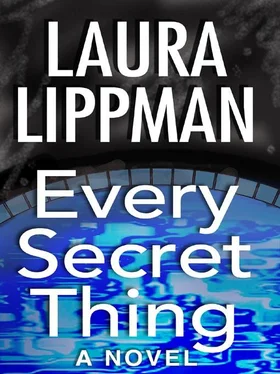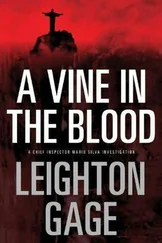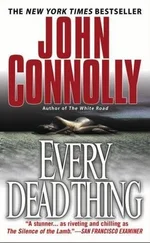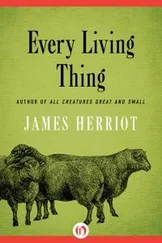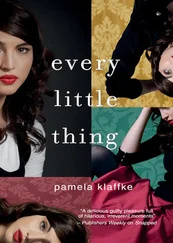Alice knew, for it was the type of thing her mother often said of herself, in different ways. Helen Manning’s interest in her own personality was inexhaustible. I am not a morning person, she might announce, almost startled by the insight. I have never liked sweet potatoes. I simply cannot wear that shade of off-green . But then, most people were like that. Alice was odd because she didn’t find her quirks interesting. She wasn’t even sure she had any.
Still, she missed that doll’s head. It had been so unexpected, sitting there among Helen’s saltcellars. It was the old kind of baby doll, with lashed eyes and a rosebud mouth with a little hole, where a child could stick a bottle. Then, depending on how you held the doll, Helen had explained to Alice and her friends, the water-formula would flow out through the doll’s eyes or bottom. For a long time, Alice had assumed the head was one of the toys Helen had salvaged from her youth. Their house was full of Helen’s old playthings. But it turned out it was another flea market find, purchased because Helen found it interesting.
“Anything in the paper?” Helen asked.
“My horoscope says all eyes will be on me today-and that I’ll find something I misplaced.”
Helen’s hand knocked her cup, and although it didn’t turn over, it sent a great slosh of coffee over the Formica table. Automatically Alice got up and grabbed a sponge from the sink, wiping up before the spill could lap the edges of the newspaper. As a child, Alice had found this table embarrassing, although her friend Wendy had insisted she considered it, and the entire kitchen, extremely cool. “It’s like the Silver Diner,” she had said approvingly, inspecting the old-fashioned sugar container, the tin signs advertising various ice creams, forgotten flavors such as Heavenly Hash and Holiday Pudding. “Or TGI Friday’s.”
Wendy had not liked the living room, but then-neither had Alice. The furniture was fussy and uncomfortable, her grandparents’ castoffs. The walls had been kept a boring and now somewhat dingy white in order to showcase Helen’s real artwork, as she called it. These were bright oil paintings of animals doing housework. A dog making breakfast, a fox vacuuming, a duck changing a baby duck’s diaper. When visitors asked about the paintings, Helen always said they were ideas for a children’s book she had never gotten around to doing. Alice was glad the book never happened, because the paintings scared her. It was hard to explain why. Perhaps it was because the animals did not look happy as they went about their chores, and there were no human touches-no clothes, no bonnets. Alice thought the fox, for example, should be wearing an apron, a frilly one, and the dog should have a chef ’s hat.
“No, you don’t get it,” Helen had said when Alice tried to explain why the paintings disturbed her. “I don’t want to celebrate housework. I don’t want to make it pretty. If I put clothes on them, the paintings would become too cozy, too safe.”
Yet the baby duck was wearing a diaper, Alice noticed, although she didn’t point this out, for she knew her mother would say she was too literal. That was her mother’s primary complaint about Alice. She was too factual, too fond of numbers. “You’re a concrete thinker,” Helen had said once. Alice knew what this meant, more or less, but she couldn’t help imagining herself as a big blockhead, her head as square and hard as a rectangle of sidewalk.
“If you’re going to read the newspaper,” Helen said now, inspecting her sleeve for coffee stains, “you might consider the want ads. You’ve been home for more than two months and you still don’t have a job.”
“I’ve been going to places in person. I went to Westview Mall looking for a job. You told me I had to find a job, remember?”
“What kind of job were you looking for at Westview?”
“Clothing stores.”
“Those are hard to get.”
Hard for a fat girl, Alice thought, but said nothing.
“I don’t understand why you don’t try the fast-food places. There are a dozen of those places on Route 40 alone, and you could walk to most of them, or take the bus.”
“I said, I’m looking .”
“But they’re always hiring.”
“I’d rather not work at a fast-food place if I can find something else.”
“Why?”
Alice tried to think of a reason her mother might find acceptable.
“I don’t approve of what they’re doing.”
“What’s that?”
“Destroying the rain forest.”
“And I don’t care for what Baltimore city schools do half the time, but a person has to work, baby.”
“You won’t even eat at those places.”
“Yes, that’s true.” Helen reached for her bony hip, gave it a squeeze. “But you do. And if you eat it, you can’t then draw the line at working there for the rain forest’s sake. There’s nothing wrong with working at McDonald’s until you find something better.”
“But when will I have time to find something better if I’m behind a fryer every day?”
Helen didn’t answer. She had drifted back into her morning silence, her private thoughts. Alice ’s words often seemed to reach Helen on a delay, like some of those talk radio shows whose callers misbehaved. Minutes would pass, and Helen would suddenly respond to a question that Alice no longer remembered asking.
But when Helen spoke again this morning, it was all too clear she had heard every word Alice had spoken.
“I ran into Ronnie Fuller’s mother at the Giant. She said Ronnie had gotten a job.”
Ronnie Fuller’s mother. Alice tried to remember the woman, but she had been such a ghostly presence in the Fullers’ household, tiny and wan. She remembered the father and the brothers much better. She had always thought Matthew, Ronnie’s youngest oldest brother, liked her. He teased her a lot, pulling her braids and punching her.
“Yes?”
“At the Bagel Barn.”
“I wouldn’t want to work there.”
“No one wants you to work there. But the Bagel Barn happens to be next to Westview. Alice -what were you really doing over at Westview?”
“Looking for work.”
“Tell me the name of one place where you’ve put in an application.”
“The Safeway.”
“The Safeway’s at Ingleside.”
“I started at Ingleside and then went to Westview. It’s right across the street.”
“The Safeway’s union. They wouldn’t even let you apply.”
“I know. I asked . I asked to put an application in and they said no, but it still counts.”
“ Alice -”
“I did. CVS and Rite Aid, too. I’ve got no experience, and no one’s hiring. Except the convenience stores, and you said I couldn’t work there because they might put me on a night shift.”
“ Alice.” Helen grabbed her by the wrist. No lingering fingertip strokes for Alice, not in this situation.
“I’m not doing anything .” But that sounded defensive, so she altered it. “I mean, I’m not doing anything I shouldn’t be doing.”
“ Alice, baby. Baby, baby, baby.”
The old endearment felt ludicrous now that Alice was almost as tall as her mother and outweighed her by at least fifty pounds.
“You’ve got to let things go, baby.”
“I know.”
“You can’t undo what’s done, baby.”
“I know.”
“The past is the past, baby.”
“I know.”
“I’m sorry I ever said anything. You ask me things, and I answer, I tell you the truth. I always did. Maybe that makes me a bad parent. But you’ve got to put everything behind you.”
“I know.”
“I love you, baby.”
“I know.”
Читать дальше
